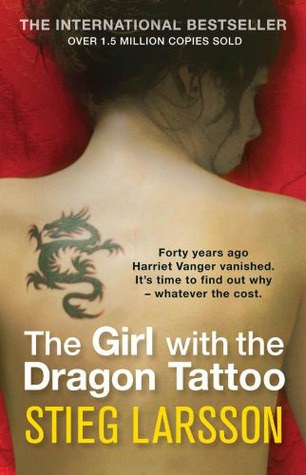Review: The Girl in the Spider's Web (Millennium #4) by David Lagercrantz
The girl with the dragon tattoo still has it.
Summary
She is the girl with the dragon tattoo—a genius hacker and uncompromising misfit. He is a crusading journalist whose championing of the truth often brings him to the brink of prosecution.
Late one night, Blomkvist receives a phone call from a source claiming to have information vital to the United States. The source has been in contact with a young female superhacker—a hacker resembling someone Blomkvist knows all too well. The implications are staggering. Blomkvist, in desperate need of a scoop for Millennium, turns to Salander for help. She, as usual, has her own agenda. The secret they are both chasing is at the center of a tangled web of spies, cybercriminals, and governments around the world, and someone is prepared to kill to protect it . . .
Lisbeth Salander and Mikael Blomkvist are back to kick arse in this book, a continuation of the Millennium trilogy that's written by a different
author. Lisbeth is back to her usual tricks, but in this book we see
that she kind of has a caring side as well. It's really nice to see her protective streak for another human being.
This book is fast-paced, probably more so than the original series. Almost all
the action happens over 5
days. That's not even a week! And the book is 430 pages! That's a lot of
action in not much time. It's exciting, it kept me hooked.
We meet some new antagonists, victims, and other supporting characters in this one, but we also revisit old characters from the original trilogy, such as the people at Millennium magazine and Officer Bublanski's team. I thought this was well done as we get to see Lagercrantz's take on Larsson's characters as well as some original characters. I guess you could liken it to fanfiction.
Speaking of which, you can tell it's a different author and translator, but it imitates the style of original trilogy pretty well. It's similar enough that the writing style doesn't jump out and say, "Hey, I don't fit in with the other books!" but at the same time it's also not quite as dry as Larsson's style.
The book explores themes such as surveillance, artificial intelligence, and how journalism has changed. None of it made me comfortable, and it's not meant to. If this book taught me anything, it's to question everything. It also makes you wonder how ethical is surveillance? AI? (I'd say not at all. It's terrifying stuff.)
There's a tiny bit of LGBTQ representation in this novel. Lisbeth's bisexuality, established in the original trilogy, is mentioned again. There's also a flirtation between two supporting female characters. But neither of these things are important to the plot, which is fantastic. They're queer women just because. They get on with their jobs and their lives and their sexuality doesn't define them. I want more of this in books, please.
There's also an autistic child in this book. I don't know enough about autism to know if it's a respectful portrayal or not, so I'll leave that for others to analyse. But there's autistic representation either way.
Overall, I thoroughly enjoyed The Girl in the Spider's Web. It isn't a necessary addition to the Millennium series, but it's an entertaining and exciting one. While it has a cute ending, there are definitely loose threads to be tied up in the next book, The Girl Who Takes an Eye for an Eye. I'll be reading that one for sure. What should I do while I wait for its publication later this year?










